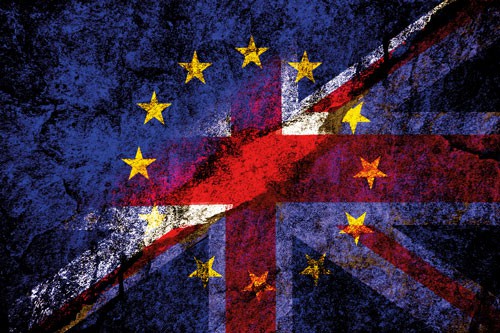
UK pharma has welcomed last night’s breakthrough in the Brexit talks between the UK and the European Commission (EC) that saw agreement reached on the Irish border, EU citizens’ rights in the UK and the UK’s financial settlement.
The Association of the British Pharmaceutical Industry (ABPI) said deal, which puts the UK on course to achieve ‘sufficient progress’ in the EC’s eyes and for the talks to move to their next phase, was a “significant step:.
The ABPI said in a statement: “The progress made on citizens’ rights is particularly welcome news for pharmaceutical companies and our employees. To provide certainty to everyone, we hope this is swiftly agreed.”
For the UK pharma sector, with its highly mobile, highly educated workforce, many of whom come to the country from an EU27 country, citizens’ rights and their implication of its workforce has been one of the most pressing issues to be resolved.
But, confirming the European Commission’s position the rights of EU citizens, EC president Jean-Claude Juncker said “today, we bring back the certainty… we have made sure that their rights will remain the same after the UK has left the European Union”.
He added: “This is in particular the case for: EU citizens’ right to live, work and study; EU citizens’ right to family reunification; the protection of the rights of EU citizens’ children; and the right to healthcare, pensions and other social security benefits.”
In addition to EU citizens’ rights in the UK not changing once the country leaves the EU in March 2019, any additional administrative procedures put in place for EU citizens will be “cheap and simple” under the deal struck.
The ABPI added: “As we now focus on phase two of the negotiations, it is now crucial that the regulation and supply of medicines for UK and EU patients is prioritised. A cooperation agreement between the UK and the EU on medicines is the best way to ensure that there is no disruption to 500 million patients receiving the medicines that they need.
In addition to such an agreement, the ABPI said it would be critical for pharma to have a “single-step, fixed-term transition period” that would allow companies to make “any necessary changes to the supply chain”.
The EC-UK agreement comes as the European life sciences sector gains some much-needed clarity over the process, with first Amsterdam picked as the EMA’s new home. More recently the UK government this week unveiled its much anticipated ‘sector deal’ for life sciences.
All eyes will now be on the European Council of EU leaders, which will meet next Thursday to decided whether the UK-EC deal marks sufficient progress in phase one of the Article 50 negotiations.
Assuming they do, the Brexit talks can move on to tackling trade and regulatory arrangements as part of their next phase, with the European Parliament then required to ratify the final Withdrawal Agreement.
The UK’s position for phase two of the Brexit talks will be, prime minister Theresa May said, to “focus on securing the deep and special partnership between the United Kingdom and European Union that we all want to see”.
However, for pharma that represents a lot of ground to cover, with policies on patents, data protection, clinical trials and marketing authorisations among Brexit’s key implications for pharma.




